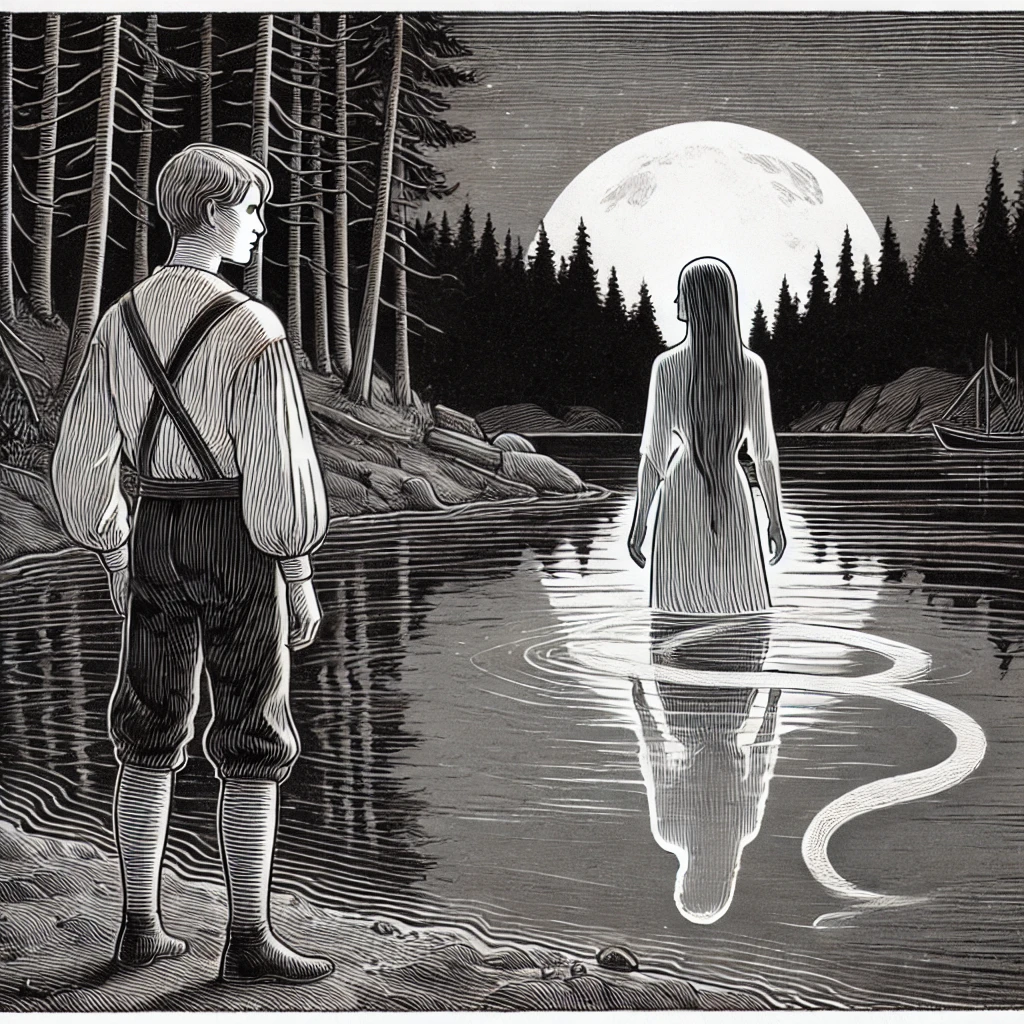
A little Pukwudgie called Neep,
Who wanders the woods while we sleep.
He'll dance thru the night,
With mischief and fright,
A friend that you might want to keep!
It’s possible to interpret The Rime of the Ancient Mariner as an anti-slavery poem, though Coleridge never explicitly stated that it was written with that intention. However, several scholars have argued that the poem’s themes—guilt, suffering, and moral reckoning—resonate with contemporary abolitionist discourse.
Evidence for an Anti-Slavery Reading:
1. The Mariner’s Crime and Guilt:
- The killing of the albatross could symbolize the destruction of innocence and the moral blindness of those who participated in the slave trade.
- The Mariner's suffering and lifelong penance may reflect the deep moral stain that Coleridge believed slavery left on individuals and society.
2. The "Nightmare Life-in-Death" and the Slave Ship Imagery:
- The ghostly ship with Life-in-Death and Death gambling for the Mariner’s soul has been compared to the horrific conditions aboard slave ships.
- The description of the "rotting" ship and the suffering of the crew may evoke the inhumane treatment of enslaved people during the Middle Passage.
3. Connection to Abolitionist Language:
- Coleridge was well aware of abolitionist literature and had condemned slavery in his essays and letters.
- Some of his contemporaries, like William Wordsworth and Robert Southey, wrote more explicitly against slavery, and he was part of the same intellectual circle.
4. Moral and Spiritual Awakening:
- The Mariner's redemption only begins when he recognizes the beauty of the natural world, which could parallel the idea that those complicit in slavery must come to see the humanity of the enslaved.
Possible Counterarguments:
- The poem is deeply allegorical, and Coleridge may have been more focused on broader themes of sin, punishment, and redemption rather than slavery specifically.
- Unlike some of his contemporaries, Coleridge never directly linked the poem to abolition in his writings.
Conclusion:
While The Rime of the Ancient Mariner may not have been written explicitly as an anti-slavery poem, its themes align with abolitionist concerns. Given Coleridge’s personal opposition to slavery, it’s plausible that his views influenced the poem’s imagery and moral lessons.
You didn’t see the evil he had planned
That makes you just as evil nonetheless
With ignorance goes evil, hand in hand
A silent guilt that no one can suppress
In hidden gardens, weeds are darkly grown
Unseen by eyes that choose such darkened place
In knowing less, you reap the seeds you’ve sown
And still you hide from truths you fear to face
The quiet wrongs that flourish in the mind
Are nourished by the choice to not inquire
What harm is done by those who will not find
The truths that burn, yet leave no trace of fire
The greater evil lies not in the deed
But in the hearts that chose to not take heed.

Upon the shores of Cazenovia's grace,
An undine dances while the waters gleam,
Her silken form reflected in the space,
A fleeting vision, born of forest's dream.
Her eyes, like pools of tranquil, shaded deep,
Hold secrets whispered by the moonlit skies;
The breezes on the water softly sweep,
As ripples play where silver silence lies.
Yet, though she glides in beauty through the night,
Her spirit, bound to water's cool embrace,
Can never know the dawn's full, warming light,
For she is but a dream of this pure place.
The undine's song is quiet, soft, and true,
A song of endless, gentle shades of blue.

Amidst the verdant glade where moonlight weaves,
A fairy wakes within her fragrant throne.
A bud of emerald, wrapped in silken leaves,
Her gown of green, by nature finely sewn.
Her wings, like whispers, shimmer in the night,
With golden veins that hum a quiet tune.
She dances soft beneath the silver light,
A wisp of wonder bathed in leafy bloom.
The forest sighs as breezes brush her hair,
Entwined with petals kissed by evening’s glow.
She floats on laughter, lighter than the air,
As vines caress the earth where magic grows.
Oh, gentle sprite, in nature’s arms embraced,
This fleeting dream will never be erased.

There once was a digger named Dug,
Much more than a big furry bug.
With claws built to tunnel,
Through dirt near a runnel,
It nested all cozy and snug.
This Dug, it once tunneled with glee,
And paused by a young maple tree.
Then said with a nibble,
“I hope you won’t quibble—
If I snack on your roots, tenderly!”
The world is getting smaller every day
That means, of course, I must expand my mind
Perceptions always change, and that’s okay
Just think of all the joy there is to find
In Africa I found another tongue
In Russia there were dolls inside of dolls
I went to London once when I was young
I find it best to listen when it calls
The “it” of course is my humanity
I find it tends to be a source for good
The goodness of a world that’s fair and free
I try to know and do the things I should
Each person is at least as good as me
I’m just one piece of all humanity.
----------
I am a resident of this place.

These AI images of Lolita are all generated by deepai.org using the following sonnet as the text prompt:
Lolita’s eyes are nothing like the sun;
Her cheeks are pale, not rosy like dawn’s hue.
If beauty were a game that could be won,
She’d break the rules, then redefine them too.
Her lips are chapped, yet sweet as sugared lies;
Her voice, a lilting tune of teasing airs.
No goddess walks with childish, scuffed-up thighs,
Yet in her sway, divinity declares.
I’ve seen pink skies, where innocence once roamed,
And yet her glance outstrips their fleeting grace.
A fractured Venus, both adored and loathed,
Her smile mocks time, her laughter rewrites space.
And yet, in all her cruel, untamed deceit,
I burn to trace the shadows at her feet.
This work is licensed under a CC0 Universal Public Domain Dedication license (CC0)

A girl of summers, youth's eternal flame,
Her laughter rings like bells through forest halls.
Dolores Haze, a fleeting, tender name,
Whose shadow dances where the sunlight falls.
Her gaze reflects the sky's cerulean hue,
Yet holds a world no child should ever know.
A stolen innocence, a heart askew,
Trapped in a tale where loveless sorrows grow.
She skips through days with wild, unbridled mirth,
A sprite who rules her fleeting, golden sphere.
Yet whispers haunt the edges of her earth,
A fragile dream beset by doubt and fear.
Lolita now, the echo of her song,
A fleeting star in darkness, burning strong.
